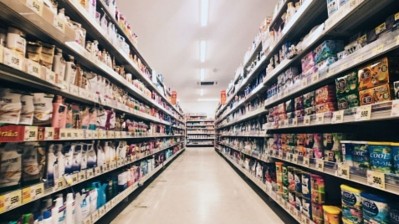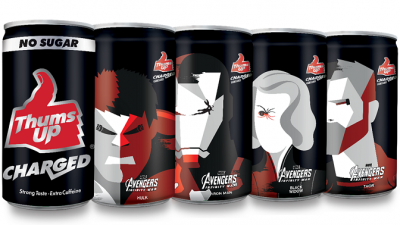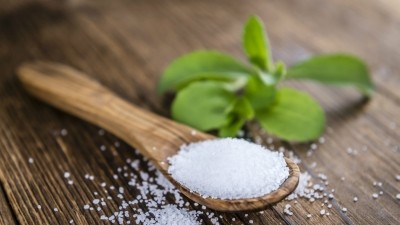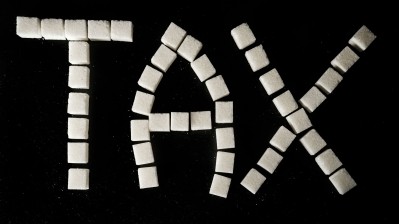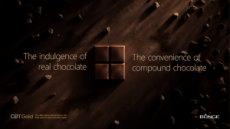APAC sugar taxes: How 2018 is shaping up from a policy perspective
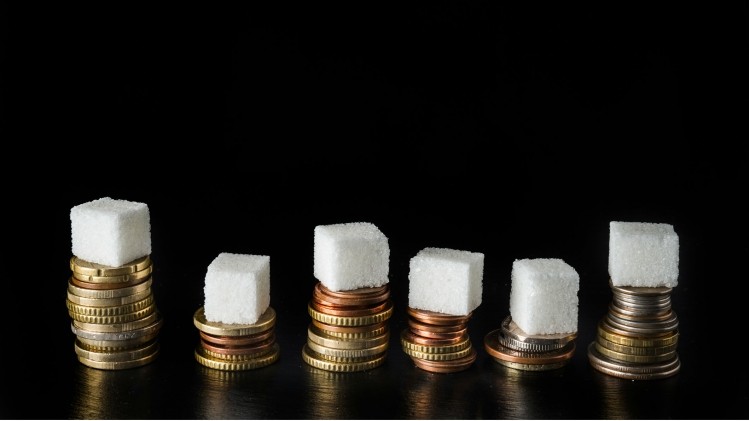
As 2018 begins, we round-up how things stand in the major markets across Asia-Pacific and the Middle East.
Australia
Australian Prime Minister Malcolm Turnbull recently dashed calls for a sugar tax, saying that consumers already pay enough taxes at the supermarket and should not have to pay an extra 20% for sweetened drinks. He said the strategy should centre on education, awareness and an active lifestyle.
His government faces pressure from a coalition of health and community groups calling for urgent action to tackle growing obesity among Australians. Its eight-point plan suggests a 20% tax, as well as restrictions on junk food advertising, a national obesity task force, and mandatory health star ratings by mid-2019.
The Chair of the Council of Presidents of Medical Colleges had said the lack of a coordinated national approach to the obesity epidemic is unacceptable, and a soft drinks tax could fund more clinical trials to assess solutions and boost public health.
Hong Kong
Instead of a sugar tax, Hong Kong has chosen to look into introducing a new food and beverage labelling system, while ramping up healthy food promotion in schools and introducing a pilot scheme to display calorie content in canteens.
Despite calls from some parties for greater measures to deal with the sugar and diabetes issue, including the idea of a tax, the territory’s administration is taking a pro-business approach, with the Secretary for Food and Health advocating persuading beverage companies to reduce sugar content through dialogue.
Currently, about one in five people in Hong Kong are reportedly overweight.
India
In July, it was reported that hundreds of Indian beverage manufacturers were preparing to start adding fruit juice to their carbonated beverages in a bid to circumvent the newly-implemented GST plan.
By doing so, these manufacturers believe that their products will be taxed 12% for beverages based on fruit pulp or juice instead of the heavy 40% for sweetened aerated beverages, such as soft drinks in the portfolio of Coke and Pepsi.
Malaysia
In May, the Malaysian government said it would not increase the market price of sugar in lieu of a possible sugar tax on drinks, as requested by one of the country’s most prominent companies. MSM Malaysia holdings called on the trade, cooperatives and consumerism minister to raise the price by RM$0.29 (US$0.07) per kilogramme.
Consumer groups in Selangor and Penang have voiced that a price hike could be used as a sugar tax, in the absence of an actual one. They see it as a means to promote safer or reduced consumption of sugary food, while having marginal effect on manufacturers. The minister, Hamzah Zainuddin, had announced that the price would remain the same, especially since the global commodity price of sugar had fallen since Malaysia had increased the domestic price by RM$0.11 in March.
New Zealand
About two-thirds of New Zealanders support a tax on sugary drinks, a survey by Auckland University found. About 67% said they either strongly or somewhat agreed with such a tax. The data reflected almost identical results by an earlier poll by Colmar Brunton more than a year before.
The government said that it has not been actively considering tax but will continue to keep watch on the evidence and practice. Previous Health Minister Jonathan Coleman said that there had been no evidence so far that a sugar tax would have an impact on obesity rates.
However, the new Labour-led government appears to disagree and is believed to be planning to introduce its own sugar tax policy.
Saudi Arabia
From June, Saudi Arabia became the first Gulf country to have a sin tax, which covers a 100% tax on energy drinks and cigarettes, and a 50% levy on carbonated drinks.
The levy is part of a raft of tax regime changes across the Gulf, including the 5% VAT rate across Gulf Cooperation Council countries. Revenues from the tax are expected to reach SAR7b (US$1.9b) in six months.
The price of a 250ml can of Code Red energy drink increased to SAR4(US$1.07) from SAR2, while Red Bull increased to between SAR 10 and SAR12.
The tax has led to heavy sales of energy drinks before the deadline. Local media reported many shelves were left empty.
Singapore
The government is weighing a range of measures including taxes, more stringent advertising bans and warning labels on products for soft drink manufacturers who fail to meet sugar-reduction objectives.
A meeting between the Ministry of Health, Health Promotion Board (HPB), industry representatives and trade groups has yielded no clear resolution as yet but, in support of the government’s war against diabetes, seven of the biggest firms – Coca-Cola, F&N Foods, Malaysia Dairy Industries, Nestle, PepsiCo, Pokka and Yeo Hiap Seng – have already committed to a maximum sugar content of 12% for all drinks sold in Singapore by 2020.
The government has launched other initiatives including a Singapore Healthier Choice movement for F&B products in which drinks that contain less than 6% sugar, for instance, can carry the Healthier Choice symbol on its packaging for consumers to note.
Pokka has already begun reformulating its drinks to match the HPB’s target. It also said, currently, more than 40% of its portfolio meets the Healthier Choice requirement.
Sri Lanka
Sri Lanka’s president recently made headlines when he publicly raged against Milo, even brandishing a Milo pack in his tirade. He accused Milo of raising its sugar content from 15% in 2012 to 16.5% today. He further threatened that he wanted them to reduce it to 5% or he would bring in legislation to control sugar content in all beverages.
Milo responded by stating it has reduced sugar content in Milo Ready-To-Drink packs by 32% in the past five years, and each pack currently contains less than 5% of added sugar.
At the event marking World Diabetes Day, the president had also asked the finance minister to extend the tax on soft drinks in Sri Lanka to all forms of sweetened beverages. Sri Lanka’s latest budget put in place a 50-cent tax on each gram of sugar in soft drinks, which took effect in early November.
Thailand
In July, it was reported that Thailand will phase in a sugar tax over six years in a bid to ‘help drinks manufacturers’ lower their sugar content and take advantage of a simultaneous lowering of tax on sugar-free beverages. The sugar tax will be increased in two phases and in the fourth year, drinks that contain sugar beyond the World Health Organization (WHO) standard will be taxed double. It will be further increased in the sixth year.
Earlier, the Food and Drug Administration said a bill to legislate for a maximum of 10% sugar and sweetener in foods had been submitted to the government. Prior to that, there was no cap for sugar in Thailand, where products often contain sugar percentages well into double figures.
Philippines
More than 300,000 people signed a petition by the Philippines association of sundry shops and small eateries, Pasco, to oppose the government’s Sugar-Sweetened Beverages (SSB) bill. Pasco said 40% of the daily income of such small shop owners will be affected, putting 1.3 million micro-retailers at risk of losing their livelihood.
Others have spoken out against the bill or have offered alternatives, among them senator Win Gatchalian, the Export Development Council under the Department of Trade and Industry, the Beverage Industry Association of the Philippines and Mondelēz.
In September, President Duterte had threatened to close the Sugar Regulatory Administration, established to promote the growth and development of the industry, though it would have a great impact on the industry already reeling from the tax. Reportedly, 5 million people would be affected.
The SSB bill proposed a tax of PHP10 per litre on SSBs, including powdered juices, energy drinks, and soft drinks. The rate will be increased by 4% each year thereafter.
UAE
The UAE imposed a tax on soft drinks and energy beverages in Oct 1. Energy drinks carry a 100% tax, while soft drinks have a 50% tax. Soft drink cans that usually retail for AED1.50 (US$0.41) now cost about AED2.25, while the price of a 355ml can of Monster energy drink has doubled to about AED12.
Sheikh Hamdan bin Rashid Al Maktoum, the finance minister and chairman of the federal tax authority, said that the excise tax will help them build a healthier society.
“The tax is set to discourage the consumption of products that negatively impact the environment and, more importantly, people’s health, while the revenues it generates will go towards supporting advanced services for all members of society,” he said.
Vietnam
In September, Vietnamese beverage firms hit out at proposals for a special consumption tax on sweetened drinks, saying their production would be badly hit by the move. According to a Ministry of Finance draft amendment to tax laws, carbonated drinks would be subject to a special consumption rate of 10%, while VAT would increase from 10% to 12% for all kinds of beverages and from 5% to 6% for sugar.
Such amendments could also lead to a rise of 12% or more on soft drink prices. As a result, there would be significant decline in beverage and consumption, say manufacturers.
Vietnam also has sugar problems of other kinds. Officials had announced that they would eliminate quotas and reduce tariffs for all sugar imported from other Asean countries from 2018 under the terms of the Asean Trade in Goods Agreement. Under a separate commitment to the World Trade Organisation, it already is required to import a fixed quota of sugar from other countries each year.
Together with competing with Thailand on exports, Vietnam will be forced to lower its sugar prices so that local producers can compete.
This article first appeared as part of a global round-up published by our sister title Beverage Daily.
